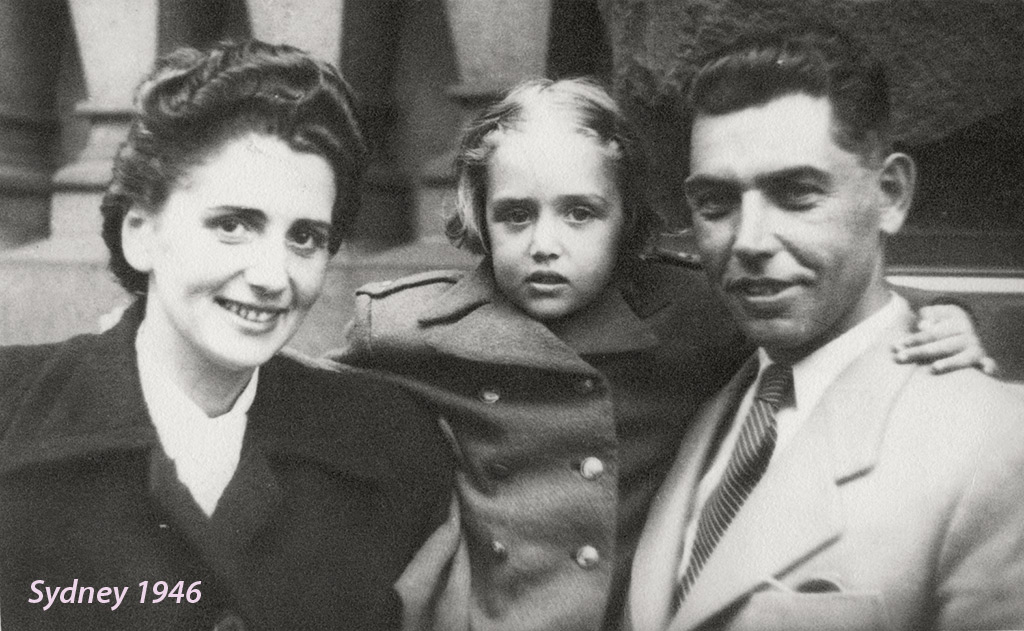Preservation of Yiddish Language,
Secular Jewish Culture,
Education and the Arts
125 West 69th Street
New York, NY 10023

The Kronhill Pletka Foundation was created in 2007 by Irene Kronhill Pletka to honor the memories of her parents, Lilka (Julia) and Kuba (Jacob) Kronhill
In September 1939, Kuba and Lilka Kronzylberg fled Poland for Lithuania. In 1941 they were granted transit visas to Japan by Chiune Sugihara, the Japanese consul in Kovno (Kaunas). Against the wishes of his government this heroic man saved thousands of desperate Jews. They traveled across the Soviet Union via the Trans-Siberian railroad and a ship to Kobe in Japan where they stayed for several months trying, as all refugees did, to get visas to any country that would accept them.
In September 1941 the Japanese removed all non-resident aliens from the Japanese islands and shipped them to Shanghai. Kuba and Lilka were delighted to finally receive visas to Australia for the second week of December 1941, and went to Hong Kong to wait for the boat, which never arrived because of the bombing of Pearl Harbor.
They then returned to Shanghai for the duration of World War II. They were able to survive because Kuba, a university graduate with an economics degree, got a job in the administration of a hospital. The pay was meager and he supplemented it with other part-time jobs and support provided to refugees by the American Joint Distribution Committee. The war ended and the AJDC provided transportation for the family to finally move to Australia.
Once in Australia, they changed the family name to Kronhill. Both were active in Jewish community life with Kuba particularly committed to Jewish welfare, increasing access to Yiddish education and the defense of human rights. Neither ever forgot that seemingly small kindnesses can have life-altering effects.
Solicited and unsolicited applications for grants are reviewed four times a year. Time sensitive projects, such as improving the lives of holocaust survivors, increasing accessibility to historical archives of the Jewish people in Eastern Europe, and programs which open higher education to underrepresented groups are of particular interest. We support projects which provide direct benefit to the populations they serve, and it is unlikely applications for capital projects will be funded.
